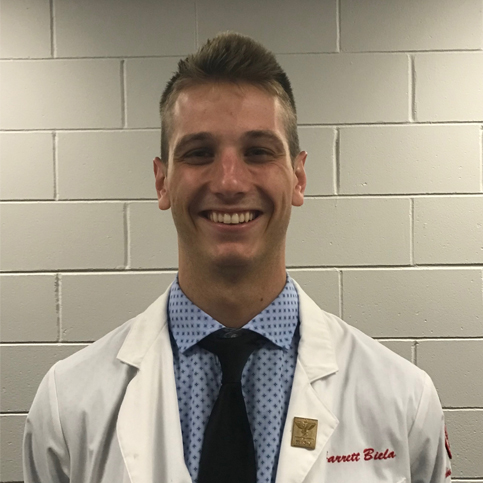Podiatric Physician, DPM
Podiatric medicine is a growing field with increasing demand as the overall population ages and access to health insurance opens. According to the American Association of Colleges of Podiatric Medicine, podiatrists diagnose and treat conditions affecting the lower extremity: foot, ankle, and related structures of the leg; utilize x-rays and laboratory tests for diagnostic purposes, prescribe medications, order physical therapy, set fractures and perform surgery.
NOTE: Pre-podiatric medicine is not a major or a program, and The University of Tampa does not have a podiatric medical school. Pre-podiatric medicine is an interest or path students choose that advisors help guide them on their journey towards applying to podiatric medical school.
Preparing for Podiatric Medical School
Earn a bachelor’s degree
Podiatric medical school is a graduate program; to become eligible to apply to podiatric medical school you need to earn a bachelor's degree and take specific pre-requisites (classes that podiatric medical schools require). At UT, students can earn a bachelor's degree and take pre-requisite courses. They will need to choose a major as pre-podiatric medicine is not a major or a program at UT.
Students who are interested in going to podiatric medical school typically major in biology, chemistry, or biochemistry. These majors include most of the required courses for entrance into podiatric medical school and will help prepare students for the Medical College Admission Test (MCAT). However, other degrees can also prepare students for health professions; thus students are encouraged to major in the field where they excel and should consult the pre-health professions advisor about coursework.
Basic pre-requisite* (Each podiatric medical school has its own set of pre-requisites, and students need to research the admission requirements of each school to which they are intending to apply.) courses required for Podiatric Medical School:
- Biology I (1) and II (2) with labs
- General Chemistry I (1) and II (2) with labs
- Organic Chemistry I (1) and II (2) with labs
- Physics I (1) and II (2) with labs
- Biochemistry
- Calculus and/or Statistics
- Intro to Psychology and Intro to Sociology: these behavioral sciences are needed for the MCAT
*Each podiatric medical school has its own set of pre-requisites, and students need to research the admission requirements of each school to which they are intending to apply. Search the nine accredited podiatric medical schools in the U.S.
Medical College Admission Test (MCAT)
- Completion of the basic pre-requisites is needed to be prepared to take the MCAT.
- The MCAT is required for all U.S podiatric medical schools. It is about 7.5 hours long and costs $305.
- Students who are on the traditional path of going to podiatric medical school directly following graduation from UT should be prepared to take the MCAT in the late spring/early summer of their junior year.
- Take the MCAT before applying to podiatric medical schools.
Build an extensive record of relevant experiences
- Shadow a podiatrist – gain knowledge of the podiatric medical field and confirm if this is your passion
- Community service – students should have a passion for helping others
- Volunteer or work – in a medical setting
- Leadership – roles on and off-campus
Podiatric medical school applications
- Students apply to podiatric medical school a full year before they intend to start (August of senior year).
- Each school has its own deadline.
- Most podiatric medical schools have rolling admissions, so they will review student files as soon as they are complete and submitted. Applicants are encouraged to apply early!
- Take a look now at what is expected of the application: AACPMAS application
Podiatric Medical School Information and Beyond
- A traditional podiatric medical school program is four years long. The first two years are spent in classroom instruction and laboratory work in basic sciences. The remaining two years include clinical science and patient care.
- There is only one podiatric medical school in Florida:
- After completion, the student earns a Doctor of Podiatric Medicine (DPM).
- After graduation, students are required to do a three-year residency training program.
Pre-Health Professions Committee (PHPC)
Members of the Department of Chemistry, Biochemistry, and Physics and the Department of Biology offer guidance to students and write letters of recommendation, known as Committee Letters, through UT's Pre-Health Professional Committee (PHPC).
Contact
Pre-professional advising has a dedicated program specialist to help students prepare for professional school in the health sciences. The specialist would like to see all pre-health students early on to ensure they are on the path for success. Please email Jackie Mikulski to inquire about the next steps in the pre-health advising program.
Additional Resources:
Explore Health Careers - Podiatry
American Association of Colleges of Podiatric Medicine

